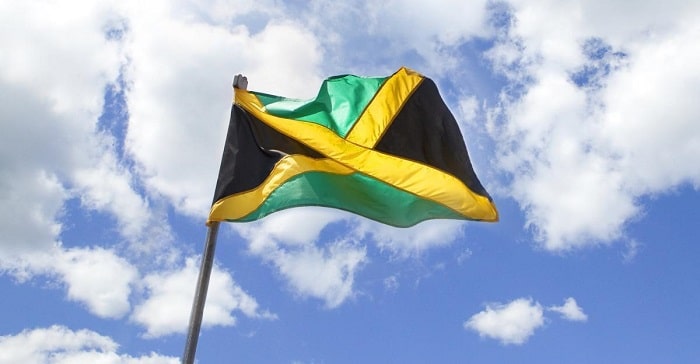Jamaican Patois (aka Patwah) is a mixture of English and Creole that has been used for hundreds of years by Jamaicans in day-to-day life. While it’s easy for English speakers to get a handle on the basics of Jamaican Patois grammar, it’s almost impossible for a non-native speaker to pick up the Jamaican dialect.
Of course, you can get by on a Jamaican holiday without knowing any Patois, but it’s fun to know what locals are saying. Below, we’ll go over a few of the grammar and most common Patois phrases to help you better understand this fascinating dialect.
The Basics: Patois Pronouns
No matter what language you’re studying, it’s always important to memorize pronouns. Thankfully, the Jamaican Patois phrases associated with pronouns and possession shouldn’t be all too hard to learn if you’re a native English speaker. Below are the basic pronouns with the English listed first and the Jamaican Patois second.
I : mi
You (singular): yuh
He: ‘im
She: shi or ‘im
It: i
We: wi
You (plural): oonu
They: dem
If you want to make any of these pronouns possessive, all you have to do is add the sound “fi” before the pronoun. You could think of the Patois word “fi” as a stand-in for the English “for.”
How Do Tenses Work in Patois?
Thankfully, there aren’t that many tricky conjugations for the past, present, and future tenses in Jamaican Patois. Indeed, most verbs don’t change their form at all for different pronouns.
There are, however, a few sounds you need to know in Jamaican Patois to indicate when an action took place. For instance, if you want to use the past progressive, most Jamaicans will add either the word “wendeh” or “did ah” before the main verb.
Present progressive sentence constructions also make use of the similar wounds “ah” or “deh,” but these are usually placed before a pronoun. Finally, sentences using the future tense should use either of these Patois phrases before a pronoun “guh” or “aguh.”
Tricky Patois Plurals
It’s common for non-Patois speakers to mistakenly assume someone is talking about two or more items when they are only referring to one. Keep in mind that just because a word ends in “s” or “es” doesn’t mean it’s plural in Jamaican Patois as in English.
It’s more common for Jamaican Patois speakers to use the phrases “dem” or “nuff” to make words plural. For example, “shoes” by itself is singular but “shoes dem” is plural. Unlike “dem,” “nuff” is usually placed in front of the object.
How to Pronounce Vowels in Patois
As mentioned above, it’s almost impossible to pronounce many Jamaican Patois phrases unless you’ve lived in the country for many years. However, here are some tips to keep in mind when trying to pronounce vowels in Jamaican Patois:
“A” is similar to the “ah” in the business “Wah-Wah.”
“E” is close to the “e” in the English word “men.”
“I” is similar to the “i” in the name “Irene.”
“O” is close to the “o” in the word “rope.”
“U” is similar to the “u” in the word “fuel.”
Typical Greetings In Patois
Now that you know a bit about Patois grammar and pronunciation, it’s time to learn some Jamaican Patois phrases. Let’s start with a few standard greetings you may hear from locals on your trip to Jamaica.
The formal “hello” is exactly the same as English, however there is a more casual “hello” that’s often spelled “wapm.” There are a few ways to say “how are you/what’s up,” but the standard ways include “how yuh do,” “whe u a seh,” and “waah gwaan?” The most likely response to this question is “fine, tank yuh,” which means exactly what it sounds like in English. To say goodbye, Jamaicans use “ba bye” for formal situations and “ta taa” for informal ones.
Besides the standard “hello,” there are a few Patois phrases used at different times of the day like in any other language. For example, “good morning” in English is “gud mawnin'” in Patois and “good evening” is “gud evenin'”. “Good night” is extremely similar in English and Patois, but Jamaican speakers write out the word “night” as “nite.”
Introductions and Common Questions
To introduce your name in Jamaican Patois, just remember the phrase “me niem [insert your name].” You could ask someone else what their name is by using the question “wha’ yuh name?”
To be a bit more courteous, sprinkle your conversation with the words “plizz” (English: please), “tank yuh” (English: thank you), and “saary” (English: sorry).
One of the most common questions tourists have to ask while on vacation is “where are the restrooms?” To ask this common question in Patois, just say “wheh det tailit deh?”
Along with asking where the toilet is, another common expression helpful for tourists is “how mi reach a [insert place name]?” This little phrase can be used to ask where various places are located. For instance, you could insert your hotel name, “di triehn stiehshan,” “di yearpwaht,” or “di kansihlet,” which mean “train station,” “airport,” and “consulate” respectively.
If you just want to find an area of the city where there’s a lot of businesses, use the phrase “Which part whole ‘eap a [insert desired location] dem.” Here are a few words you could insert into this phrase, “rehstahrahnt,” “‘otel,” and “bar,” for “restaurants,” “hotels,” and “bars.”
Patois Phrases for Emergencies
Although we hope you never need these phrases, it’s important to at least be familiar with how to call for help using Jamaican Patois.
First off, you could use the phrase “ekscyooz mi” to get attention from passers-by. Alternatively, you could use the words “‘elp” or “luk ‘oht.”
If you need medical attention, use Patois phrases like “mi need waan doctah,” “mi get injuh,” and “ah waan ihmeerjensih,” which mean “I need a doctor,” “I’m injured,” and “it’s an emergency.”
You could also ask to use someone’s phone with the phrase “mi can use yuh phone?”
How to Further Your Knowledge of Patois
Did you know Jamaican Patois is commonly spoken in certain areas of Panama and Costa Rica? It’s true! There are so many interesting facts about Jamaican Patois’ history and use today.
Although we can’t fit all the important Patois phrases into this article, there are plenty of Jamaican Patois resources online. To further your study of Patois phrases, be sure to check out the Patois dictionaries on Jamaicanpatwah.com and Jamaicans.com.

